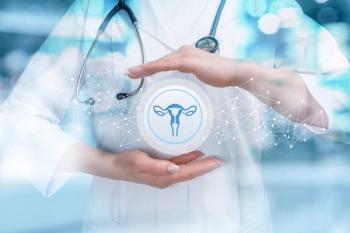
Addressing Burnout in NPs: The Need for Peer Networking, Professional Development, and Support
How can we help to reduce the risk of burnout among nurse practitioners in psychiatry?
There is unprecedented demand for mental health services in the United States. Throughout the pandemic, many Americans who suffered from stress, fear, anxiety, depression, and sadness sought help for the first time. This put a spotlight on the provider shortage that has been brewing for years. It also put a renewed focus on the need for professional networking and community support for advanced practice providers. By utilizing peer networking, accessible support, and community engagement that is tailored to advanced practice providers, we can help to reduce the risk of burnout among
How the Pandemic Reshaped In-Person and Virtual Patient Care
In the face of the pandemic, we had to pivot and enhance or expand our services in telehealth. Many providers, including myself, have continued seeing patients virtually. I think
Prior to the pandemic, we were able to gather in person more easily and safely in offices or at professional association meetings. Now, that personal connection is lacking. It is a little more complicated to pop your head in your colleague’s door to ask a question, and in my experience, providers are still a little less inclined to travel for professional group meetings. I have long been involved with special interest groups and online communities with message boards, but it can be cumbersome and requires extra steps if I want to directly contact a fellow specialist to discuss a complex patient case or other professional matters. The ‘new normal’ and these fragmented experiences have created a sense of isolation in the psychiatric NP community that can largely be remedied by engaging in secure, online networking and peer support designed specifically for advanced practice providers.
Early in the pandemic, telehealth presented challenges for communicating with and treating patients outside of the office from a technological standpoint. Like many others, I had to pivot to treat patients online and necessary resources like encrypted video platforms, HIPAA-compliant communications, and soft dialers were expensive and hard to come by. Now, it is a lot easier to find these types of services and some professional networking groups offer them at low-or-no cost to providers.
During the transition to telehealth, I transformed my practice so I could treat patients in an online world, and I have retained many of these adaptations. For example, when patients would attend sessions in person, I could hand them a clipboard with paper questionnaires to initially gauge their symptoms and how they were feeling. Now in a digital environment, how could I do that? I worked with a vendor to create a system that would meet the needs of my practice. I also relied upon software that allowed me to connect with patients via their smartphones and wearables, which opened the door to a new branch of research called “digital phenotyping.” It allowed me to understand how depressive symptoms impacted my patients when I could see prolonged inactivity in their daily lives.
That also helped me recognize unhealthy habits in myself that I had picked up as a result of the ‘new normal’ where I was spending 12+ hours a day talking to dozens of patients online without moving my body. I was suffering from burnout and compassion fatigue, and it was clear that I needed to get a standing desk, plus prioritize my health by exercising and spending time connecting virtually with my network of colleagues who were experiencing many of the same issues.
Now, I am still seeing the bulk of my patients online. Most of them love the convenience, and frankly so do I. I have an elderly patient who has been with me for over a decade. He is a retired physician and he told me recently that meeting virtually is the best thing that ever happened to him: “I don’t have to be on the freeway, I don’t have to drive in this traffic, I don’t have to fight for parking spaces.” He said he would never go back to the old way. For me, I appreciate the convenience and being able to offer more variety to patients and serve them how they prefer. I still have about 25 patients who like to hold space together, so I have kept my office for them and they are the only reason that I ever go into my office anymore. Plus, somebody has to check the junk mail that accumulates in the office mailbox.
The Importance of Professional Growth, Connection, and Continuing Education
Throughout the pandemic, nurses at all skill levels have been working in acute care, med surg, and ICUs. They have been exposed to a variety of situations where they were providing emotional support to patients and their families. Many of these nurses experienced firsthand that mental health support is a critically important component of overall patient care and have begun to discover that they could more directly provide that care. Now, we are seeing some nurses gravitate toward psychiatry and are seeking advanced credentials to be able to do this work. We also see interest from leaders and administrators in nursing who often already have the advanced degrees required to make the transition to provide more psychiatric care. There is a significant need for additional psychiatric providers in our field and there is an opportunity for nurses and other clinicians to work toward filling that gap. By increasing access to professional growth opportunities with social networking and high-level messaging about the need for advanced practice providers in psychiatry, we can provide quality care for more patients.
As states across the country continue to expand the NP scope of practice, the need for reliable information regarding full practice authority, leadership, and entrepreneurship has grown. When I started out in the profession in a state with full practice authority, there was very little NP-specific information available to inform processes like starting a business, working with insurers, hiring labor, and managing payroll. Fortunately, there are professional groups that have seized the opportunity. I have found great support in these groups where I can share ideas about professional development and learn from others about the unique aspects of our work.
The same can be said for increasing access to reliable, up-to-date information tailored to specific practice areas. During the pandemic, many avenues of research came to a halt and providers lacked the time to search for the most up-to-date information about caring for patients, especially those with serious illnesses like
As we work to grow and expand the number of NPs specializing in psychiatry, we need to leverage our tailored peer networking solutions, support one another, and make continuing education accessible to everyone practicing in our field, whether that is guidance on the latest research emerging in psychiatry and mental health, a secure messaging and communication platform for our patients, or a safe place online for NPs to exchange ideas and feel connected with our peers. Thankfully, we have the technology in our pockets to connect with more NP peers than ever—no matter our specialty, background, or location. If we are going to work together to solve the nation’s health care crisis, we must utilize our connections and community that support the important work we are doing.
Dr Hamilton is in private practice in Nevada and Oregon. He is also the Assistant Vice President and Dean, Post-Licensure Nursing at Rasmussen University and curates resources for POCN’s Centers of Excellence.
Newsletter
Receive trusted psychiatric news, expert analysis, and clinical insights — subscribe today to support your practice and your patients.







